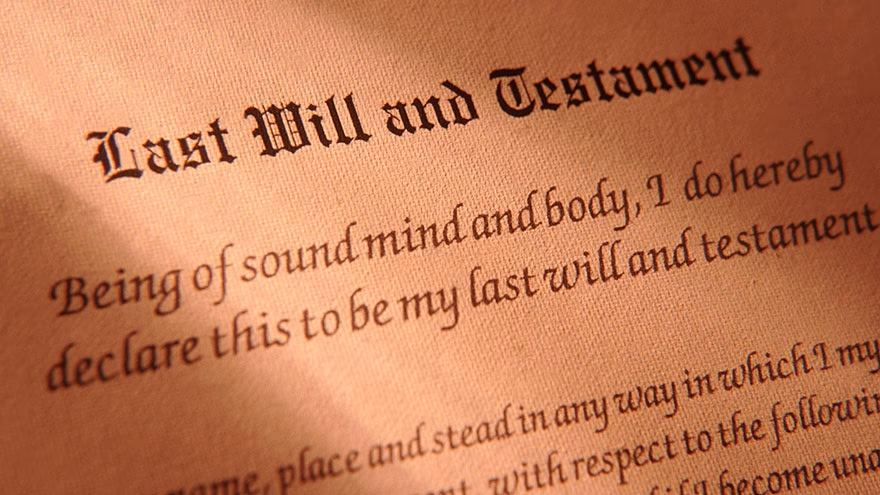Rather than leaving their estate to chance or, more likely, a fight, each state has intestate succession laws. Usually these favor spouses and close blood relatives. If your wish is to leave your property to people other than the ones specified in the laws of intestate succession, a will, trust or some other arrangement is necessary.

Identification
Intestate means "without a testament," or without a will. When a person dies and no valid will exists or can be produced, he is said to have died intestate and a condition of intestacy is declared in the probate court. The intestate laws function as a substitute to the directions given in a will.Once intestacy is established, probate follows the same procedure it would have otherwise taken, except that the intestate succession laws, not a will, direct the disposition of assets left over after the satisfaction of creditors.
Unified Probate Code
In the 1960s, legal scholars examined probate laws around the country and compiled a Uniform Probate Code (UPC) that reflected the major practices of the time. The code does not have the weight of law, but has been adopted in whole or in part by numerous states.Although states occasionally revise the code by adopting new laws of intestacy, the UPC remains an important reference. In 1990, Article II of the UPC, which deals with intestacy, was revised to reflect changes in American culture, in particular the prevalence of divorce, remarriage, children from previous spouses and the use of trusts rather than wills to transfer assets
Spouse
Though intestate succession laws vary by state, under the UPC, spouses are highly favored. If a person dies with no living parents or descendants who are not also children of the spouse, then the spouse gets 100 percent of the estate, even if there are other blood relatives. If there's a surviving parent, the spouse still gets all of the first $200,000 and three-fourths of everything else after that.Similarly, if there are surviving children who are not descendants of the spouse, the spouse is entitled to the first $100,000 plus half of all that remains. The spouse's share in community property states and the issue of how adopted children and step-children are treated are questions answered differently by the states
Other Heirs
If there is no spouse to inherit an intestate estate, it is divided equally among the surviving children of the decedent. If there are no children, the estate passes to a surviving parent. If no parents are living, then children of the decedent's parents (siblings of the decedent) receive equal shares of the estate.If there are no living siblings to the decedent, but a living grandparent, the estate passes to the grandparent. If the grandparent is not living, then living descendants of the grandparent (aunts and uncles of the decedent) inherit the estate with half going to the paternal grandparent's decendants and half to the maternal grandparent's descendants if both grandparents are alive. If still no heirs can be identified, the estate escheats to the state.
Requirements Of Survival
In order to inherit from a decedent, an heir must survive the decedent by at least 120 hours. This is significant in issues where, say, two spouses are involved in a fatal accident. If one dies at the scene and the other the next day in the hospital, it will not be assumed that the estate of the first spouse transferred entirely to the second spouse and that only the heirs of the second spouse can inherit.Instead, the second spouse will be deemed to have predeceased the first spouse for intestate purposes and the first spouse's estate will be administered as if no living spouse existed at the time of death.
You Might Also Like :: How to Find Probate Attorneys
Save for later
Found this helpful?
Pin this article to your Pinterest board and come back to it whenever you need a reminder.
Save to Pinterest


